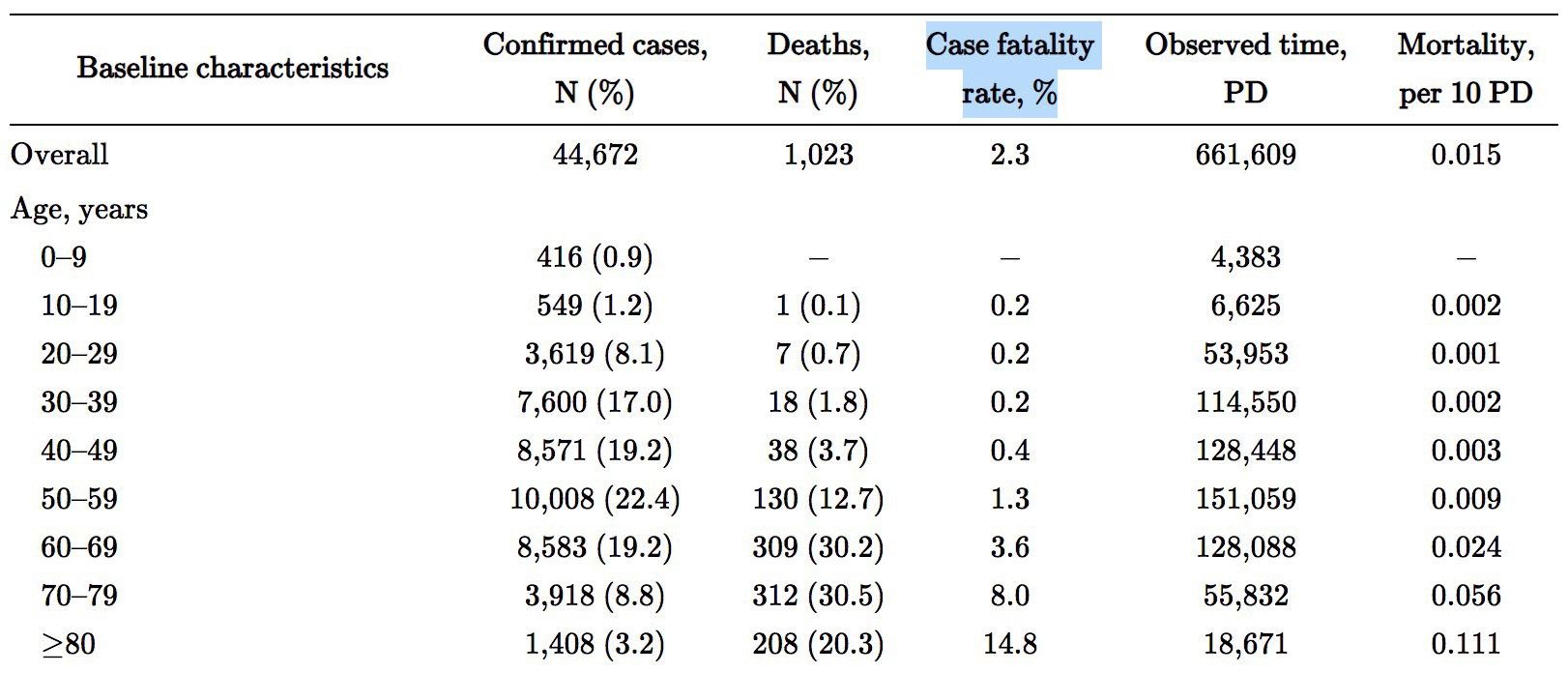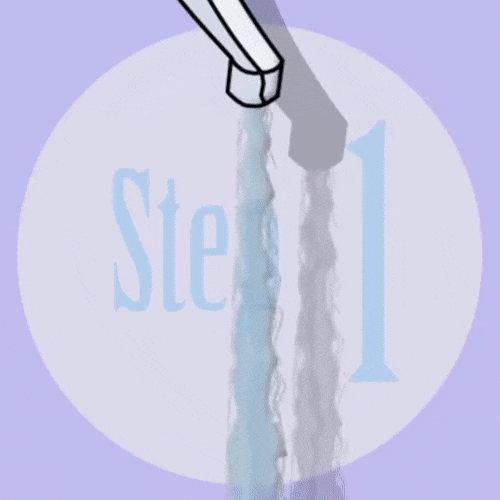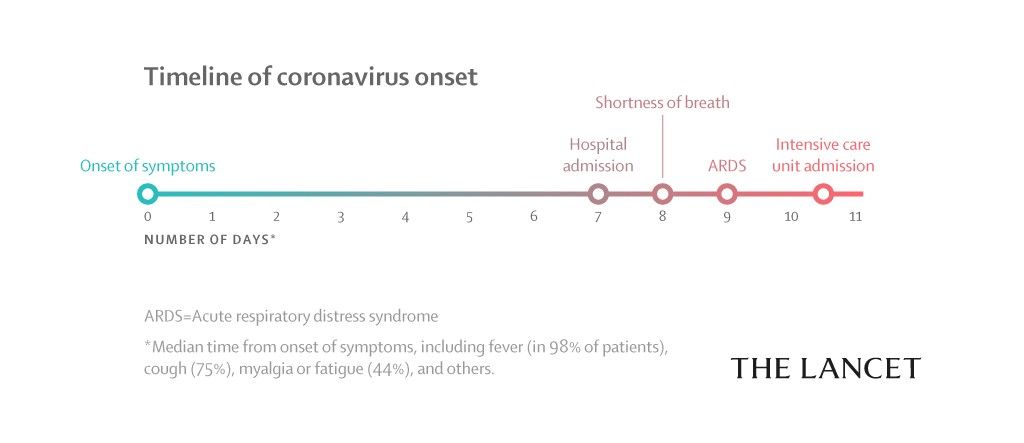How To Prepare For Coronavirus
How to be ready without making thing worse
Containment is over. By the time China was quarantining 50 million people, we should have realized. That’s not a quarantine, it’s desperation. COVID-19 is now in self-sustaining pockets across the globe — Iran, Italy and as seems increasingly likely, America. Travel restrictions now only delay its spread and may be pointless. The cat is out of the bag. Coronavirus is coming.
These are a few things that will help you prepare, and help you not panic.
The elderly are most at risk

If you are under 40 years old, the fatality of COVID-19 is just double that of the flu. If you’re over 80, however, the fatality is nearly 150x worse. So you can see who is most at risk here.
So far this novel coronavirus seems to go easy on children and the young while being the most deadly for the old, sick and immunocompromised.
Hence, if you are old, you should be the most concerned. The elderly will need to practice the highest levels of social isolation and rigorous hygiene (hand-washing), which we’ll discuss.
Medical personnel are also at high risk, based on the sheer amount of exposure. They actually need masks, protective gear and whatever support we as a society can give them. As much as possible, conserve resources that they need, including masks.
Hand-washing is the best personal defense

The WHO only recommends masks if you are caring for someone with COVID-19, or if you yourself are coughing or sneezing. For daily walking down the street, they are mostly useless and a run on them makes life more difficult for medical professionals on the front-lines.
Hand-washing is recommended for everyone. This is in fact your best defense, but you have likely been washing your hands wrong. The recommended way to wash hands is shown in the GIF above — palms, back of hands, between fingers, under fingers, thumbs, fingertips. Once you learn, it becomes instinctual. Do this. Go learn it now, and do it multiple times a day, especially before and after going out in public. Use soap and water or hand sanitizer if your hands aren’t visibly dirty.
I can’t overstate this. Frequent and thorough hand-washing is your first and in many ways only line of defense. Wash well, wash often.
Know what to look for
A coronavirus is a type of cold. If you’ve had a cold, the symptoms are much the same.
Everyone should know the #COVID19 symptoms — for most people, it starts with a fever and a dry cough, not a runny nose. Most people will have mild disease and get better without needing any special care” (Dr. Tedros, Director General WHO)
After you self-isolate, if you have these systems, call a doctor and follow their advice as to how to physically get to them if that’s what they recommend.
At this stage, it is helpful to other people to wear a mask, but at the least cover your mouth or nose with a bent elbow or tissue when you cough or sneeze.
In later stages, COVID-19 is a quite serious respiratory infection and severely affected patience need oxygen and help breathing.
If you feel sick, stay home
This is tragically hard for Americans who lack paid leave, but if you’re feeling at all sick stay home. Social distancing and the isolation of the contagious is the only way to slow the spread of COVID-19, and that depends on sick people staying home. Don’t send your kids to school sick, don’t go into work. This is basically impossible advice to people that have to earn daily wages or who don’t have paid leave.
If you own a company, give leave generously. If you have money, share it. Encourage people to work, study or whatever they do from home. If you employ a daily wage earner (ie domestic help) tell them and continue to pay them if they take sick leave. Honestly, everyone deserves paid leave, and at this time we see why. It’s a public health necessity for sick people to stay home.
Get medical help

Call ahead, and go to the doctor. As the WHO says, “If you have a fever, cough and difficulty breathing, seek medical attention and call in advance. Follow the directions of your local health authority.” This is also sadly difficult in countries without public healthcare, like America. However, everyone regardless of income level needs to be getting medical help.
On the one hand, at later stages COVID-19 can make breathing difficult to impossible, patients will need oxygen and external assistance to breathe. On the other hand, knowing and testing for the COVID-19 is essential for mitigating it, and that requires contact with the medical system.
Fight disinformation
There are no ‘hacks’ for this. Only hand-washing and public health management. Keeping your throat wet won’t do anything, there are no miracle cures. Resist this misinformation on WhatsApp and avoid spreading it.
Reputed sources are the WHO, the CDC and — as third parties — Stat News and the Lancet have made relevant medical reporting and studies free. Virology Down Under is an accurate and entertaining source as well. For visualizing the spread and latest counts, this page from Johns Hopkins has become the gold standard.
Epidemiologists and professionals to follow on Twitter include Marc Lipsitch of Harvard, Gabriel Leung of Hong Kong University, Caitlyn Rivers of Johns Hopkins, Dr. Celine Gounder, etc. There are more people here. You can also listen to the Epidemic podcast or watch the Pandemic series on Netflix for background.
Those are sources of information. Anything ‘forwarded as received’ on WhatsApp is likely disinformation. Unfortunately, this outbreak is running into politics and governments that try to control or distort information. People will want to fill that void themselves, but we just have to rely on medical professionals and organizations.
The only solid advice you can give someone is to wash their hands frequently and well. When faced with disinformation just reiterate that.
TL;DR
If you understand nothing else, know that COVID-19 is a new cold which is a serious threat to the elderly and medical professionals. If you are young and in good health, you should be fine, but please practice public health measures to protect everyone. Specifically, learn how to correctly wash your hands and wash/sanitize them often.
Besides soap and water, things are just out of your hands. Follow reputed information sources and try to continue to be nice to each other, because we’re all in this together. This seems to be the pandemic scientists have been warning about for years. Be prepared.